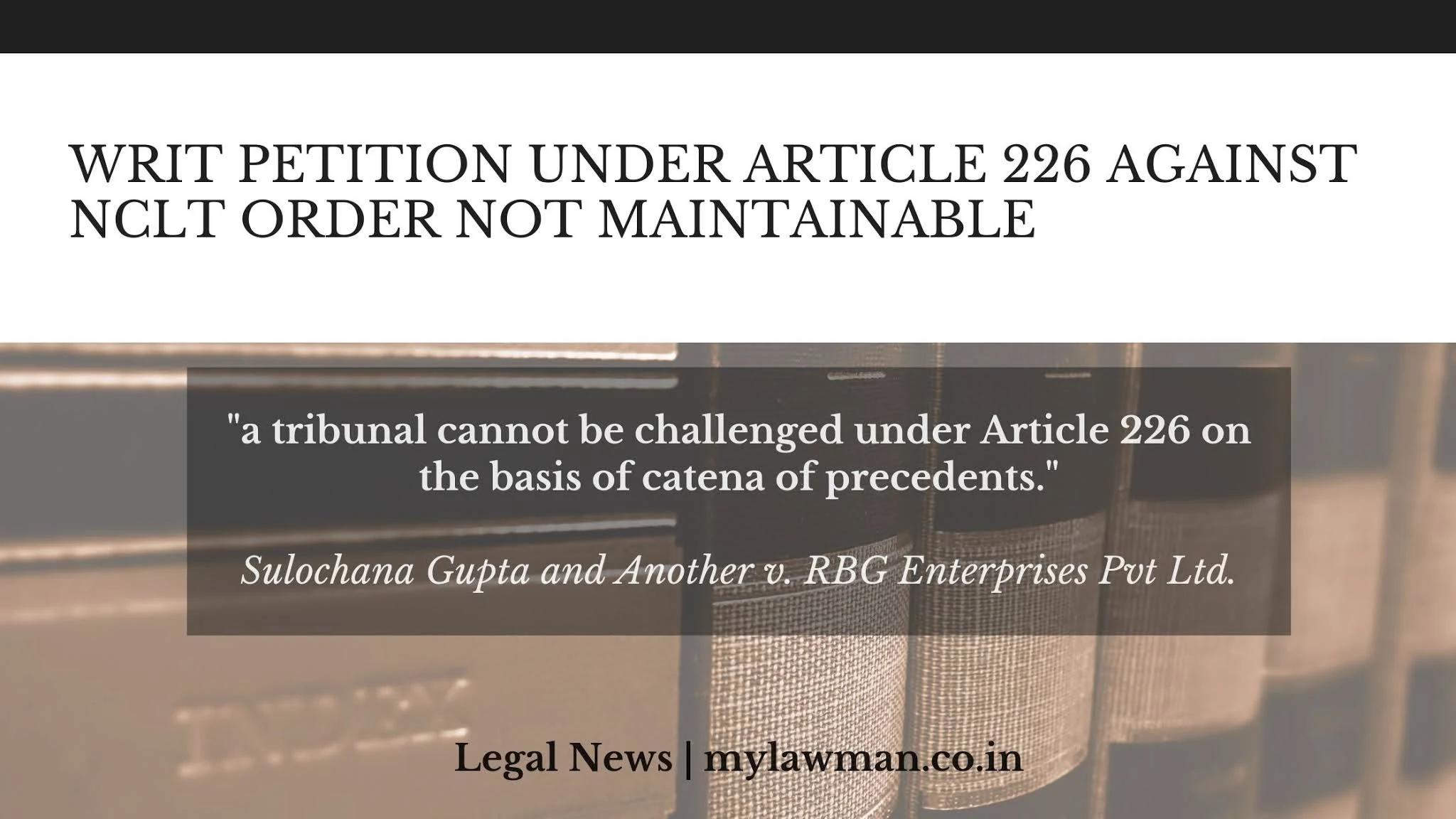In a judgment given by Hon’ble Kerala HC held that write jurisdiction under Article 226 cannot be filed to challenge an order passed by National Company Law Tribunal. The Hon’ble court rejected Limited relief given in a challenge against an order passed by NCLT Kochi bench. In the Sulochana Gupta and Another v. RBG Enterprises Pvt Ltd. And Other, the division bench stated that a tribunal cannot be challenged under Article 226 on the basis of Catena of precedents.
The Hon’ble court asserted that the dispute was a civil dispute in nature and appeal to the National Company Law Appellate Tribunal was an alternate remedy available. The dispute arised out of an order passed by NCLT on July 9, that put restrain on the managing director of the company from initiating any meeting or doing a financial transaction.
This order was passed in a complaint by which a few stakeholders alleged operation and mix management. A writ petition was filed challenging the order by MD and the company. In view of the present pandemic, they were permitted to carry out their necessary transaction for day to day functioning of the company as filing an appeal before NCLAT was impossible due to COVID-19. This relief given by the single bench was rejected by the division bench, "...in the case on hand, when none of the parties, State or authority or instrumentality of the State, or any private body, discharging public functions, have been arrayed as respondents, when the writ petition has been filed under Article 226 of the Constitution of India, having regard to the roster followed in listing the cases, writ court ought to have directed the respondents/writ petitioners to make necessary amendments, to the provisions under which the writ petition ought to have been filed, or in the alternative, directed that the writ petition be placed before the concerned court, dealing with the challenges made to the orders passed by Courts, or Tribunals, as the case may be. Admittedly, the order impugned in the writ petition (Exhibit-P1) is not an administrative order, passed by the National Company Law Tribunal. "...in the case on hand, when none of the parties, State or authority or instrumentality of the State, or any private body, discharging public functions, have been arrayed as respondents, when the writ petition has been filed under Article 226 of the Constitution of India, having regard to the roster followed in listing the cases, writ court ought to have directed the respondents/writ petitioners to make necessary amendments, to the provisions under which the writ petition ought to have been filed, or in the alternative, directed that the writ petition be placed before the concerned court, dealing with the challenges made to the orders passed by Courts, or Tribunals, as the case may be. Admittedly, the order impugned in the writ petition (Exhibit-P1) is not an administrative order, passed by the National Company Law Tribunal. "Writ petition filed under Article 226 of the Constitution of India, can be for the enforcement of fundamental rights or for any other purpose, as envisaged under Article 226 of the Constitution. There is no pleadings or materials to substantiate that the appellants are discharging public duties or public functions, and thus, amenable to writ jurisdiction under Article 226 of the Constitution of India"
Urvi Yadav










0 Comments